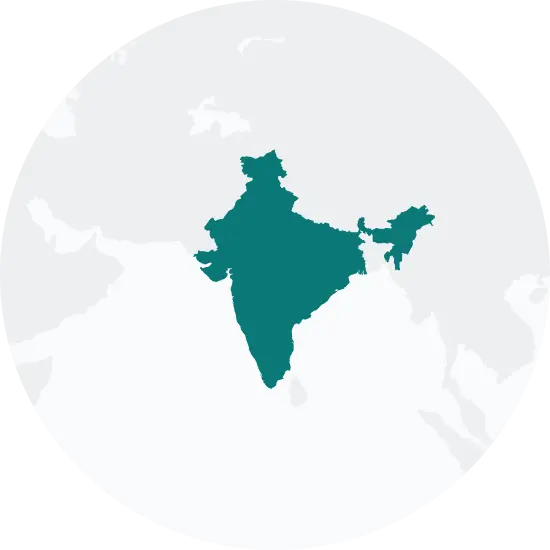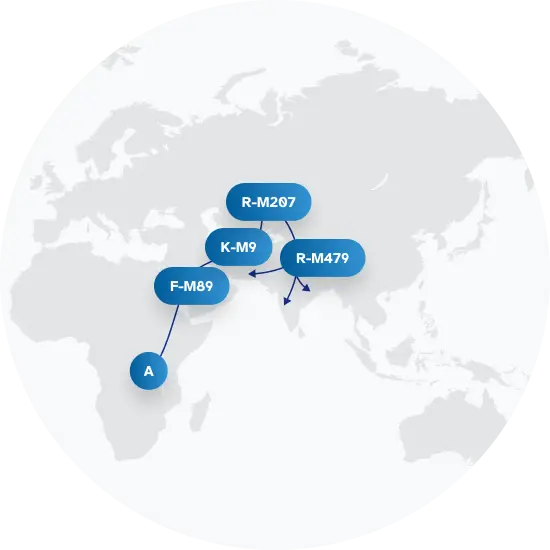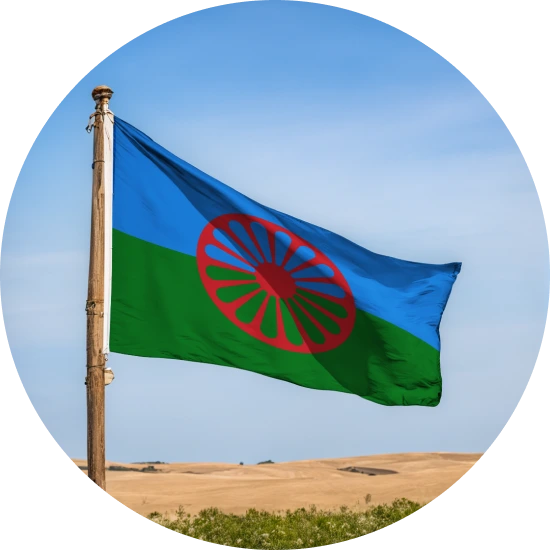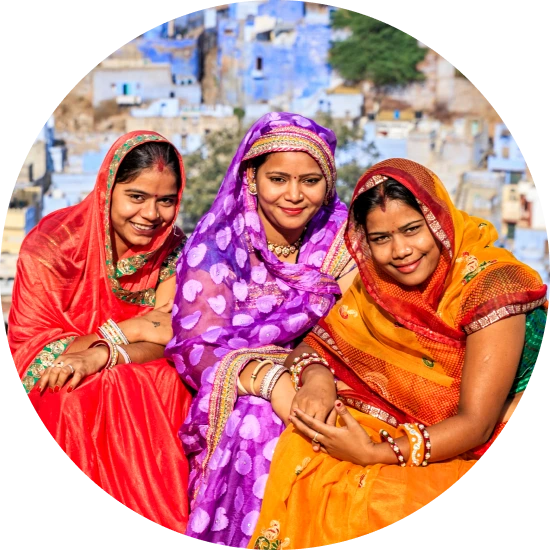Explore the Family Name Naik
How common is the last name Naik in the United States?
Based on the Decennial U.S. Census, the surname Naik has seen a significant rise in popularity from 2000 to 2010. In 2000, it was ranked at 14,898, but by 2010, it had risen to the rank of 10,528. This represents a substantial jump of 29.33%. The actual count of people with the Naik surname increased by a notable 67.23%, growing from 1,822 to 3,047 over the decade. The proportion per 100,000 people also saw an increase of 51.47%, moving from 0.68 to 1.03.
| 2000 | 2010 | Change | |
|---|---|---|---|
| Rank | #14,898 | #10,528 | 29.33% |
| Count | 1,822 | 3,047 | 67.23% |
| Proportion per 100k | 0.68 | 1.03 | 51.47% |
Race and Ethnicity of people with the last name Naik
In terms of ethnic identity, data from the Decennial U.S. Census shows that the Naik surname is most commonly found among those identifying as Asian/Pacific Islander. This group represented 90.29% of all Naiks in 2000, and this percentage increased slightly to 93.57% by 2010. The number of Naiks identifying as two or more races decreased by 59.38% during the same period. The proportion of Naiks identifying as white increased slightly, from 2.85% to 3.12%. While the Hispanic representation decreased from 0.71% to 0.39%, new occurrences appeared among those identifying as Black and American Indian and Alaskan Native by 2010.
| 2000 | 2010 | Change | |
|---|---|---|---|
| Asian/Pacific Islander | 90.29% | 93.57% | 3.63% |
| White | 2.85% | 3.12% | 9.47% |
| Two or More Races | 5.49% | 2.23% | -59.38% |
| Hispanic | 0.71% | 0.39% | -45.07% |
| American Indian and Alaskan Native | 0% | 0.39% | 0% |
| Black | 0% | 0.3% | 0% |
Naik ancestry composition
23andMe computes an ancestry breakdown for each customer. People may have ancestry from just one population or they may have ancestry from several populations. The most commonly-observed ancestry found in people with the surname Naik is Northern Indian & Pakistani, which comprises 51.6% of all ancestry found in people with the surname. The next two most common ancestries are Southern Indian & Sri Lankan (20.9%) and Southern Indian Subgroup (13.6%). Additional ancestries include Bengali & Northeast Indian, British & Irish, French & German, Spanish & Portuguese, and Italian.
Ready to learn more about your ancestry? Get the most comprehensive ancestry breakdown on the market by taking our DNA test. Shop 23andMe
| ANCESTRY BREAKDOWN | COMPOSITION |
|---|---|
| Northern Indian & Pakistani | 51.6% |
| Southern Indian & Sri Lankan | 20.9% |
| Southern Indian Subgroup | 13.6% |
| Other | 13.8% |

Possible origins of the surname Naik
Your DNA provides clues about where your recent ancestors may have lived. Having many distant relatives in the same location suggests that you may all share common ancestry there. Locations with many distant relatives can also be places where people have migrated recently, such as large cities. If a large number of individuals who share your surname have distant relatives in a specific area, it could indicate a connection between your surname and that location, stemming from either recent ancestral ties or migration.
Based on 23andMe data, people with last name Naik have recent ancestry locations spanning a few countries, mostly in India, and the United Kingdom of Great Britain and Northern Ireland.
| RECENT ANCESTRY Location | Percentage |
|---|---|
| Maharashtra, India | 45.80% |
| Karnataka, India | 38.90% |
| Tamil Nadu, India | 30.60% |
| Kerala, India | 29.20% |
| Goa, India | 29.20% |
What Naik haplogroups can tell you
Haplogroups are genetic population groups that share a common ancestor on either your paternal or maternal line. These paternal and maternal haplogroups shed light on your genetic ancestry and help tell the story of your family.
The top paternal haplogroup of people with the surname Naik is R-L266, which is predominantly found among people with Central & South Asian ancestry. Haplogroup R-L266 is descended from haplogroup R-M479. Other common haplogroups include L-M27 and J-M241, which are predominantly found among people with Central & South Asian and European ancestry. Other surnames with similar common haplogroups are: Sheikh, Nair, Menon, Patil, Kumar, Yadav, Gandhi, Srivastava, Haque, Shah.
The most common maternal haplogroups of people with Naik surname are: M, R, M4_64. These most commonly trace back to individuals of European ancestry.
 Paternal Haplogroup Origins R-M479
Paternal Haplogroup Origins R-M479
Your paternal lineage may be linked to the Romani people
The Roma, who are also called "Gypsies" and "Romanies," are an ethnic group that originated in India and migrated to Europe 1,000 years ago. There are several different Roma populations, including Vlach Roma, who speak Hungarian and Romani languages, and Carpathian Roma, who speak exclusively Hungarian. Today, Roma populations mostly live in Southeastern and Central Europe, and make up about 7% of the total population in Hungary. Haplogroup R2a is also present in a Kuwaiti Bedouin population called the Awazim. It is possible that haplogroup R2a was brought into the Awazim population during the migration of the Roma people from India to Europe 1,000 years ago.
Your maternal lineage may be linked to the ancient people of the Indian subcontinent
While Haplogroup M is widespread throughout South and East Asia, it is more diverse on the Indian sub-continent than anywhere else in the world. The high degree of diversity of M in India is likely tied to its ancient arrival here nearly 50,000 years ago. In addition to M2, which is found throughout the subcontinent, there are dozens of haplogroups branching off of M that exist in India. These branches are often connected to specific regions, tribes, or ethnic groups. For example, haplogroup M18 is found among the Oraon peoples of eastern India and Bangladesh, while haplogroup M41 is common among the Pardhan speakers of eastern India, and haplogroup M31a can be found on the Andaman Islands, just off the southeast coast of India.

What do people with the surname Naik have in common?
Spoiler alert: it's complicated. People with the same last name are usually no more genetically similar than a randomly sampled group of people from the same population. That said, people with the same surname are more likely to have similar ancestries than randomly sampled individuals. The reason is the tendency of people with similar cultural or geographical backgrounds to preferentially mate with one another. That's why people who share a surname may be more likely to share traits and tendencies in common than people within the general population. Check out the percentages below to see the prevalences of tastes, habits, and traits of people with your surname compared with prevalences among 23andMe users.
Preferences
Traits
Wellness

Migraine
A severe headache characterized by intense pain, sensitivity to light and sound, and often accompanied by nausea and vomiting.
"Naik" Surname 16.4%
23andMe Users 16.4%
Are health conditions linked to the last name Naik?
The short answer is that, if there is an association between surname and health, it's usually more about your ancestry than your name. Individuals with a given surname are no more genetically similar than the general population but often have similar ancestries. The populations of people associated with those shared ancestries often have sets of genetic variations, also known as alleles, in common. Some of those alleles are associated with a greater likelihood of developing certain diseases.
Disease variant frequency by ancestry
Disease allele frequencies in populations associated with the surname Naik are shown below. Important Note: not everyone with a disease allele will develop these health condition




